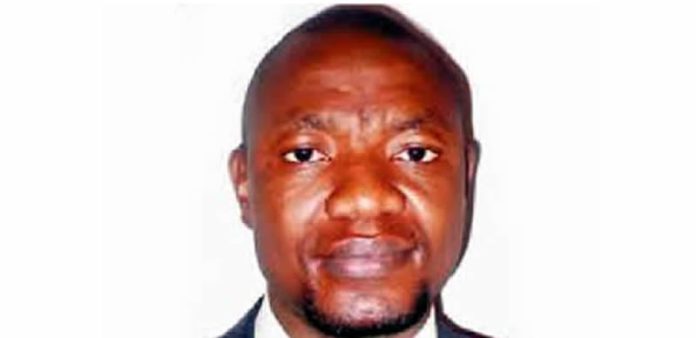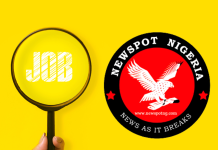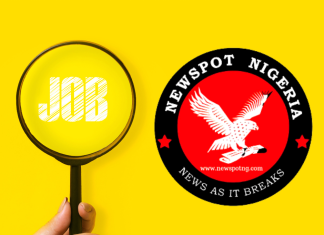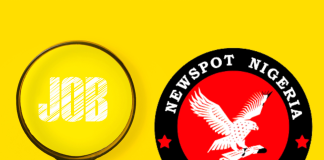There is so much rage in the land. People are angry at those that presently manage our commonwealth. Even the presidential candidate of the All Progressives Congress, Bola Tinubu, has succumbed to the mass angst and is also attacking his own party. But I want us to understand one important truth. It is not about Nigeria. It is about the entire global system. People are fed up with the way society is run. The poor heaps the blame on the rich. The world is desperately in need of socio-political change. But I recognise that we in sub-Saharan Africa should be the first beneficiary of any paradigm shift because we are the poorest of the poor.
This is exactly why the upcoming February election is very important, not only to Nigerians, but to Africa, and indeed the entire global poor. There is a palpable feeling in the air. The teeming youthful population of Nigeria seems to have pitched their tent with the candidate of the Labour Party, Peter Obi. They see him as a candidate different from his “old-guard” rivals and who can bring real change to the disillusioned young Nigerian. Remarkably, it is the recognition of this groundswell of youthful support that former President Olusegun Obasanjo, in throwing his weight behind Obi, had primarily addressed his letter to the Nigerian youth.
But before we get carried away with the exciting “hope for change”, which Obi represents, let us put the Nigerian political scenario in its true global context. From my green point of view, what we are witnessing in Nigeria is simply an extension of the yearnings of the people of the earth. There are so many resources but few people are benefitting from them. Then, these few rich beneficiaries do not even care about the environment while exploiting the earth and the poor. They pollute, waste, and damage the ecosystem, while the poor masses suffer the impacts of the ecological backlash they leave in their wake.
A fortnight ago, at the World Economic Forum in Davos, Switzerland, several groups staged anti-Davos demonstrations, protesting global firms for exacerbating human-made damage to the environment. Environmentalists, feminists, left-wing politicians and activists spoke in the same voice, calling for the world to shift focus away from profit and rethink the global capitalist economy because without “preserving nature… the economy is not possible in the future.” There was even a call to abolish the World Economic Forum because the way it is structured is problematic, “with the people of power and money that come here and the rest of the public is outside.”
What is more, when delegates began to arrive in Davos, ‘Debt for Climate’ activists protested at a private airport in eastern Switzerland, which they said would be used by some WEF attendees; and they issued a statement calling for foreign debts of poorer countries to be cancelled in order to accelerate the global energy transition.
The central issue here is that there is a general demand for a paradigm shift towards shared prosperity, wherein the rich would ensure that the poor get to be served the basic comforts of life in a sustainable manner. At the governmental level, the poor nations will have their debts cancelled in order to release them from pressure enough to join others in adopting climate-friendly energy regimes. Meanwhile, the political activists among these protesters actually want power to shift from democrats to socialists. And herein lies the conundrum. There have been several experiments in the past which have shown that power-shift is unpredictable and could create a Frankenstein.
The other concern is trust. If the rich countries forgave our debt, to what extent would our political leaders ensure that everybody got a piece of the pie? Will they use the money to fund their extravagant lifestyle and corrupt official spending while still keeping the masses impoverished? The sad reality is that the elite bands together while the poor is left with the tough task of searching for the right person to trust with power – a person who would not end up in bed with the elite.
For instance, the president, Major General Muhammadu Buhari (retd.), was perceived as the leader of the downtrodden masses, called ‘Talakawa’ in Northern Nigeria. The vast majority of the people that saw to his electoral victory in 2015 were sure he was an outsider in the Nigerian elite gang. They trusted him to plug the drainpipe through which the corrupt rich syphoned Nigerian wealth, and then re-plug the poor into the country’s feeding bottle. They actually believed Buhari was coming to distribute wealth to them. Something like a Robin Hood, who took from the rich to give to the poor. They were proved wrong.
Yours truly was one of the people that marketed Buhari as a green politician. He was frugal. He was environmentally friendly during his first coming as a military head of state. He seemed not to care about material superficialities. But when he ascended into office in 2015, the general literally changed his green garb. He went the way of all politicians, and began to ditch his friends, shifting form as a snake dropped its skin. Even his wife raised the alarm immediately, saying that her husband had changed and had now surrounded himself with “strange faces”.
Today, the Talakawas who believed in Buhari before are now so disillusioned that they throw missiles at him. It happened in Katsina and Kano states. They no longer see him as one of their own. They now see him as a detached ‘rich man’ who cannot feel their pain, and never cared whether they lived or died. What is Buhari’s sin? He joined the political elite club. There is no concrete evidence, but people can feel his transformation. Yet, his flying presidential jets (which he promised to sell off and feed the poor), sitting as the Minister of Petroleum, and not allowing the Ecological Fund to be channeled towards green ends, are matters to ponder.
To me, it is not only Buhari that disappointed us; our type of elite-centric democracy failed too. Buhari was unfortunate to be sucked into the whirlpool of realpolitik, and he was not smart enough to survive the luxurious allure. The gang of rich politicians and bureaucrats living on our democratic Aso-citadel outsmarted him. They showed him the pleasures of office and told him how he would lose everything if he decided to stay on the green lane. He chose to comply.
The question now is whether Peter Obi’s victory will change his colour. His name is nearest to (R)Obi(n) Hood than any other contender for the presidency. Granted, he has never claimed to be a green politician; but he is an acclaimed ‘stingy’ player. One then wonders if he could muster enough political will and personal courage to use his stinginess as a whip to correct the many laxities in our national governance process. There are numerous opportunities missed and goodwill squandered by Buhari, not because he is corrupt, but because he lacks the intelligence, cunningness, and perspicacity to work his ideology into the fabric of a highly volatile and sophisticated ecosystem like Nigeria.
Obi must think globally and ideologically because he cannot afford to disappoint the young people that are putting their heads on the line for him. Democracy is failing the world, and, perhaps, a new political paradigm would emerge from Nigeria, the way democracy and socialism at one time became a West-versus-East affair. Can Nigeria supply the world with the third ideology: A new economic and sociopolitical order that feeds into a global hunger for equity, justice, and climate action?
Share your story or advertise with us: Whatsapp: +2347068606071 Email: info@newspotng.com








